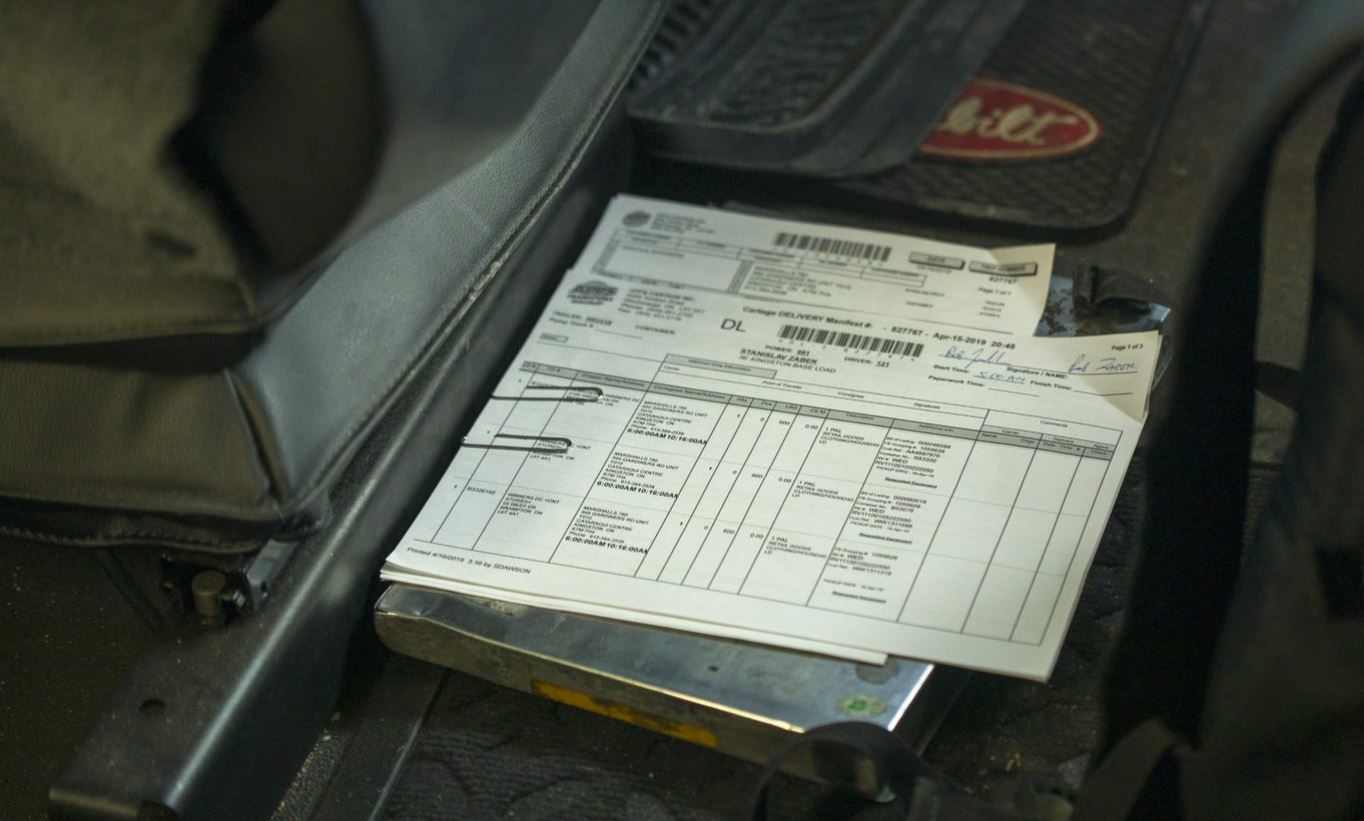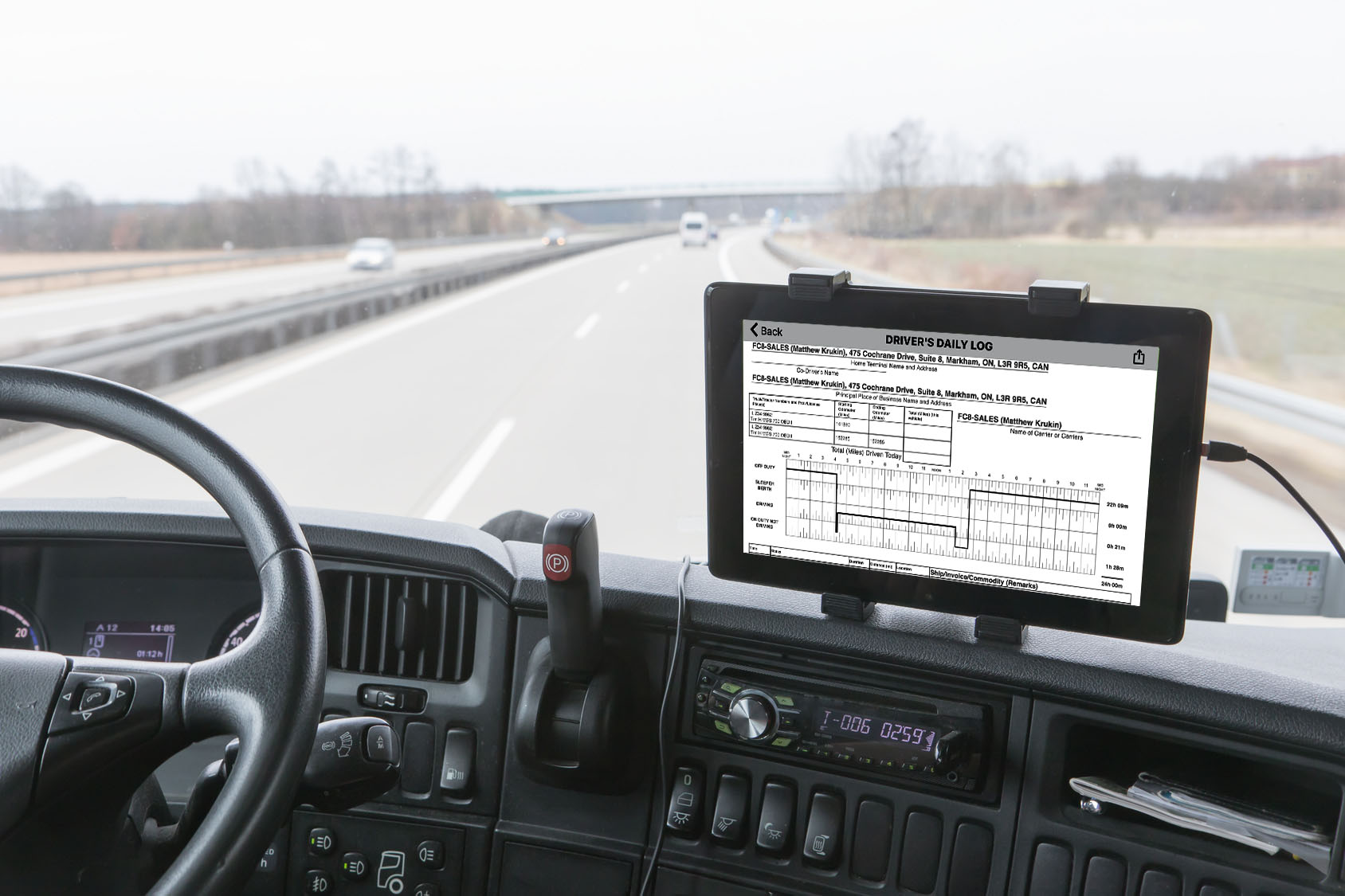Exemption to allow relief from the requirements established under the Commercial Vehicle Drivers Hours of Service Regulations
As expected, Transport Canada has approved an essential Hours of Service (HOS) ‘Freight Transportation Exemption.’
This Exemption has similarities to the U.S. Federal Motor Carrier Safety Administration (FMCSA) issuance of their March 13th, 2020 national Emergency Declaration for Commercial Motor Vehicles (CMVs) delivering relief in response to the COVID-19 Outbreak.
The purpose of this Blog is to highlight the similarities and differences that have been adopted by Canada Transport.
To begin, Transport Canada, in conjunction with the provincial and territorial regulatory bodies that oversee HOS, have approved the Exemption.
According to the Transport Canada new release on the Essential Freight Transport Exemption, the Exemption will remain in force until April 30, 2020, at 23:59 EST, or when the Exemption is no longer in the public interest or is likely to affect motor carrier safety.
The Exemption will assist federally regulated truckers and drivers engaged in the transport of essential supplies and equipment in direct assistance to the COVID-19 emergency relief effort.
At time of writing, this Exemption is prescribed for ‘extra-provincial truck undertakings and their drivers’ for essential freight transport, and not the more general term ‘motor carrier’.
The Exemption does not cover ‘extra-provincial bus undertakings’, which would make sense given the social distancing protocols that are in place.
Another key Exemption takeaway is that it only currently applies to the movement of freight according to Federal HOS rules, and not truckers moving freight solely within a province.
All other elements of Canada’s HOS regulation under SOR/2005-313 remain in unchanged, which includes the requirement to ensure that drivers maintain a daily log or electronic recording device to record their hours of driving, on-duty and off-duty time. Therefore, truckers using the BigRoad HOS should continue to use the solution in order to record a driver’s record of duty status (RODS).
The Canada HOS Exemptions, along with the specific types of goods that are Essential Freight, are identical to those that were listed in the March 24, 2020, U.S Expanded Emergency Declaration.
Please note that there are specific ‘Made in Canada’ administrative requirements that truckers will need to complete with prior to being eligible under this Exemption. These requirements include, but are not limited to, notifying the provincial hours-of-service director of the trucker’s base jurisdiction of their intention to operate under this Exemption.

This Exemption states that truckers will also have to provide specific documentation, which includes the following:
- The commercial vehicles that are to be operated;
- The licence plate numbers of those vehicles and the province of issuance;
- The names of drivers who will operate the commercial vehicles;
- The drivers’ driving licence numbers and province of issuance.
This Exemption further states that truckers:
- Keep the provincial hours of service director of the base jurisdiction informed of any changes to the list of commercial vehicles or the drivers. These changes are to be reported by means of weekly reports;
- Hold a valid safety fitness certificate that has not been assigned a Conditional or Unsatisfactory Safety Rating by the base jurisdiction;
- Not request, require or allow a commercial vehicle to be used if either the commercial vehicle or driver are subject to an out-of-service declaration;
- Require that a copy of the exemption be placed in the commercial vehicles that are operated in accordance with this Exemption;
- Encourage shippers to indicate on the Bill of Lading that the supplies and equipment being transported are in direct assistance to the emergency relief efforts during the response to COVID-19;
- Keep at their principal place of business or other location deemed acceptable by the provincial hours of service director of the base jurisdiction of the motor carrier, a copy of the exemption as well as daily logs and other supporting documents that demonstrate compliance with the conditions of this exemption and shall at the request of an inspector or provincial hours of service director, immediately make available for inspection such documentation;
- Monitor drivers and other employees for compliance with the conditions of this exemption and where non-compliance is observed, ensure immediate remedial actions are taken to effectively eliminate the non-compliance and document these monitoring efforts and results;
- Not request, require or allow a driver to drive if their faculties are impaired by fatigue to the point where it is unsafe for the driver to drive;
- Ensure that in cases where a driver informs the extra-provincial truck undertaking that he or she needs immediate rest, the driver must be permitted to take at least 8-consecutive hours of off-duty time before having to report again to the home terminal; and
- Ensure that a driver operating under the terms of this exemption takes a minimum of 24-consecutive hours of off-duty in every 14-day period.
While operating under this exemption, the driver of an extra-provincial truck undertaking operating a commercial vehicle shall:
- Indicate in the “Remarks” section of each daily log, if the exemption is being used on that day;
- Carry a copy of the exemption in the commercial vehicle and make the documents available for inspection by an inspector, immediately upon request;
- Not drive if their faculties are impaired by fatigue to the point where it is unsafe to drive;
- Take a minimum of 10-consecutive hours of off duty time after the delivery of essential cargo;
- Request 10-consecutive hours of off-duty time from the extra-provincial truck undertaking, where the driver feels the need for immediate rest; and
- Understand that he /she may be the subject of a declaration of out-of-service if the driver operates a commercial vehicle while his / her ability or alertness is so impaired or so likely to become impaired through fatigue as to make it unsafe for him/ her to begin or continue to operate the commercial vehicle. In addition, the driver shall also understand that this exemption will no longer be applicable if he/she is the subject of an out of office declaration.
At the time of writing this Blog, it was unclear where the specific documentation that Truckers must be sent to, and in what format. Therefore, I suggest that you reach out to your Provincial Commercial Vehicle Safety and Enforcement Department for more information on how to comply with the above reporting requirements, or for answers to any questions or issues you may have with respect to the Exemption and its requirements.
For your benefit I have included a link to the Transport Canada ‘Freight Transportation Exemption’.
DISCLAIMER
Complete Innovations Inc. (hereinafter referred to as “Fleet Complete”) makes no representations or warranties about the accuracy or suitability of any information contained within the Ask the Expert blogs (the “Blogs”) or materials referenced therein (“Related Materials”) – and all such information and Related Materials is provided to Blog readers on an “as is” basis. Fleet Complete hereby disclaims all liability for any claims, losses, or damages in connection with the use, application, accuracy or suitability of any information in any Blog and Related Materials. Fleet Complete does not recommend, guarantee, warrant, or endorse the products or services of any firm, organization, or person, or contents of the third-party site(s). The information contained in the Blogs and Related Materials is not intended to constitute legal advice or the rendering of legal, consulting, or other professional services of any kind. Readers of the Blogs and Related Materials should not in any manner rely upon or construe the information or resource materials included therein as legal, or other professional advice and should not act or fail to act based upon the information in these Blogs and Related Materials without seeking the services of a competent legal or other professional.



































































































